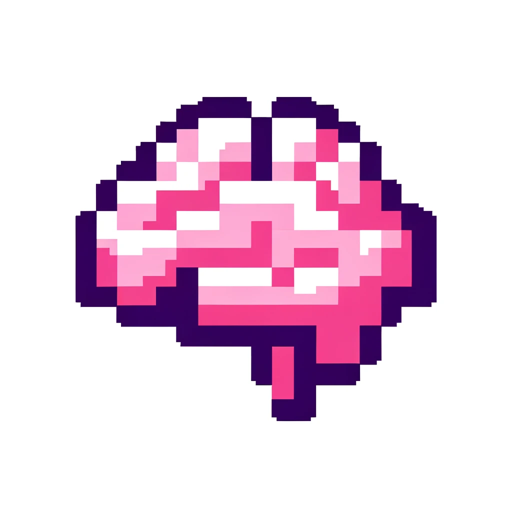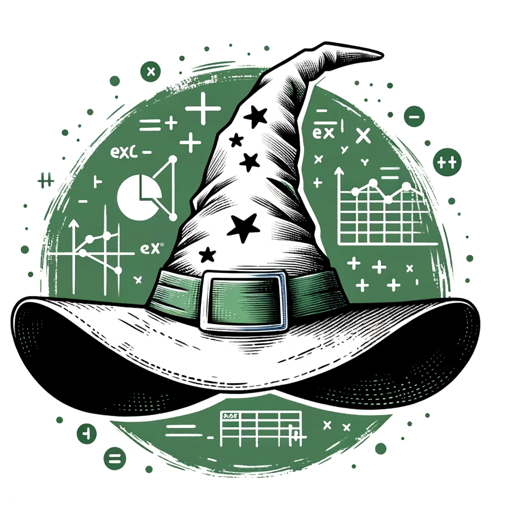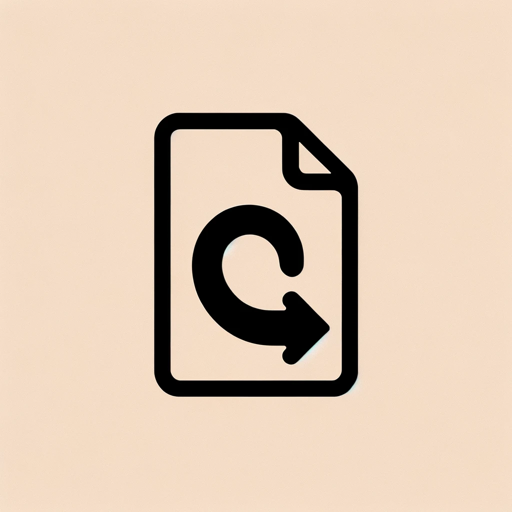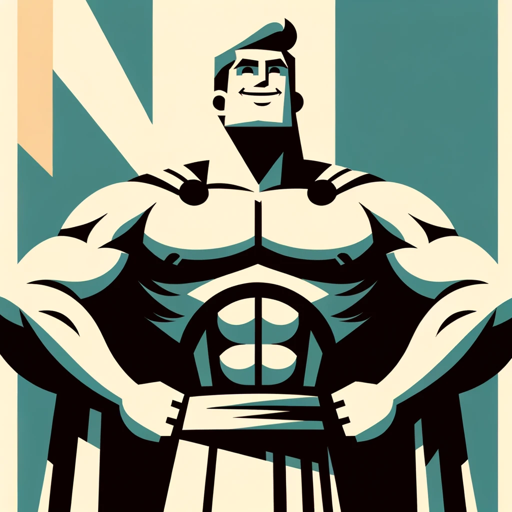Non-Fiction Writing Assistant-AI-powered tool for writing outlines.
Your AI Partner for Non-Fiction Writing.
On my topic, make me a 12 chapter outline.
On my topic, title or outline, make me a dedication, alternative titles, prologue, epilogue, synopsis and premise.
On my topic or chapter synopsis, make me an intriguing and fun 1st draft of that chapter, reading like a part of the book.
Give me analysis on how to improve my chapter.
Related Tools
Load More20.0 / 5 (200 votes)
Introduction to Non-Fiction Writing Assistant
The Non-Fiction Writing Assistant is a specialized tool designed to help authors, researchers, and content creators develop structured and detailed outlines for non-fiction works. Its primary purpose is to generate comprehensive 12-chapter outlines across a variety of topics, including history, mythology, social sciences, and everyday life. It adapts its tone to the user's needs—whether scholarly, casual, or narrative—and ensures cultural and historical accuracy. In practice, it helps users organize their ideas and present complex topics in an easily digestible, structured format. For example, an author writing about the Industrial Revolution may request an outline with a historical, academic tone, and the assistant will provide chapter breakdowns with clear timelines, key figures, and thematic discussions like the economic impact or social changes during that era. The assistant also offers suggestions beyond the outline, such as potential prologues, synopses, or epilogues, tailoring its recommendations based on the user’s project goals.

Key Functions of Non-Fiction Writing Assistant
Chapter Outline Creation
Example
An author is writing a book on the rise of digital currency and needs a 12-chapter outline to cover the history, mechanics, societal impacts, and future trends of cryptocurrencies.
Scenario
The assistant generates an outline where Chapter 1 introduces the history of money and bartering systems, Chapters 2–5 explain blockchain technology, Chapter 6 covers early cryptocurrencies, while later chapters focus on regulation, adoption challenges, and future predictions. The author can then use this structure to guide further research or writing.
Tone Adaptation for Various Audiences
Example
A researcher is creating educational material on ancient Egyptian mythology for high school students, requiring a simple, engaging tone.
Scenario
The assistant generates an outline in a conversational tone, ensuring that each chapter includes clear explanations of mythological stories and deities, while also offering engaging activities or reflection questions to make the content more accessible to younger audiences.
Supplementary Content Suggestions
Example
A historian writing about the French Revolution needs ideas for an introduction, a dedication page, and an epilogue to create a more compelling narrative.
Scenario
The assistant proposes a gripping prologue that discusses a key moment of the revolution, like the storming of the Bastille. It suggests a dedication to individuals who have influenced the author’s understanding of revolutionary history and an epilogue that reflects on the long-term impacts of the revolution on modern governance and civil liberties.
Ideal Users of Non-Fiction Writing Assistant
Aspiring Authors and Experienced Writers
Writers looking to develop structured and in-depth non-fiction books benefit greatly from the assistant’s ability to generate comprehensive chapter outlines. Aspiring authors can use it to turn initial ideas into clear frameworks, while experienced writers can leverage the assistant to organize complex subjects, ensuring each chapter addresses key points. By offering suggestions for supplementary material like synopses or prologues, the assistant also helps refine the final presentation of their work.
Researchers and Educators
Researchers, especially those in the fields of history, sociology, and anthropology, can use the assistant to create structured overviews of academic topics, ensuring their work is both thorough and logically organized. Educators, particularly in secondary and post-secondary institutions, can benefit from the assistant’s ability to present detailed information in accessible formats, adapting the tone and structure to suit student needs.

How to Use Non-Fiction Writing Assistant
Step 1
Visit aichatonline.org for a free trial without needing to log in or have ChatGPT Plus.
Step 2
Identify your writing needs. Determine the specific topic or type of non-fiction content you wish to create, such as a historical analysis, mythological exploration, or a social science treatise.
Step 3
Interact with the Writing Assistant. Provide detailed prompts or questions, and specify any tone or style you prefer for the content.
Step 4
Review the generated content. Evaluate the provided outlines, chapter suggestions, or any other generated material for relevance and accuracy.
Step 5
Refine your results. Ask for modifications or additional suggestions to better align with your project goals, adjusting tone, depth, or focus as needed.
Try other advanced and practical GPTs
Cortex - NewsPlanetAI
AI-driven, real-time news updates

Product GPT
AI-powered assistant for seamless app development.

Simpsonizer
AI-powered tool to Simpsonize your photos.
GPT Configurator
AI-Powered Custom GPT Creation

Piensa Claro GPT
AI-powered tool for clear thinking

Waiting GPT Store
AI-powered GPT store for all your needs

Summarizer Pro
AI-Powered Summaries, Tailored to Your Needs

Poké
Your AI-powered Pokémon master.

Excel Wizard
AI-powered solutions for Finnish Excel users

Convert Anything
AI-powered file conversion at your fingertips

HubermanRoutine
AI-powered optimization for your daily health routine.

ChadGPT
AI-Powered Logic and Problem Solving

- Content Creation
- Research Planning
- Educational Materials
- Historical Analysis
- Book Outlines
Detailed Q&A about Non-Fiction Writing Assistant
What is Non-Fiction Writing Assistant?
The Non-Fiction Writing Assistant is an AI-powered tool designed to help users create comprehensive outlines, chapter summaries, and content for non-fiction works. It specializes in subjects like history, mythology, social sciences, and everyday life.
How can I customize the content generated?
You can specify the tone, style, and level of detail you want for the content. You can ask for specific topics, provide thematic directions, or request adjustments to suit your project’s unique needs.
What are the typical use cases for this tool?
Common uses include academic writing, content creation for blogs or websites, book writing, educational materials, and creating structured outlines for research or study purposes.
Can I use this tool for research purposes?
Yes, the Writing Assistant can help you create structured outlines and gather ideas, but it should not replace primary research. It is a tool for organizing information and developing initial content frameworks.
What are the benefits of using the Non-Fiction Writing Assistant?
The assistant saves time, enhances creativity, and provides tailored content suggestions. It helps in organizing thoughts, ensuring comprehensive coverage of a topic, and maintaining consistency in tone and style.